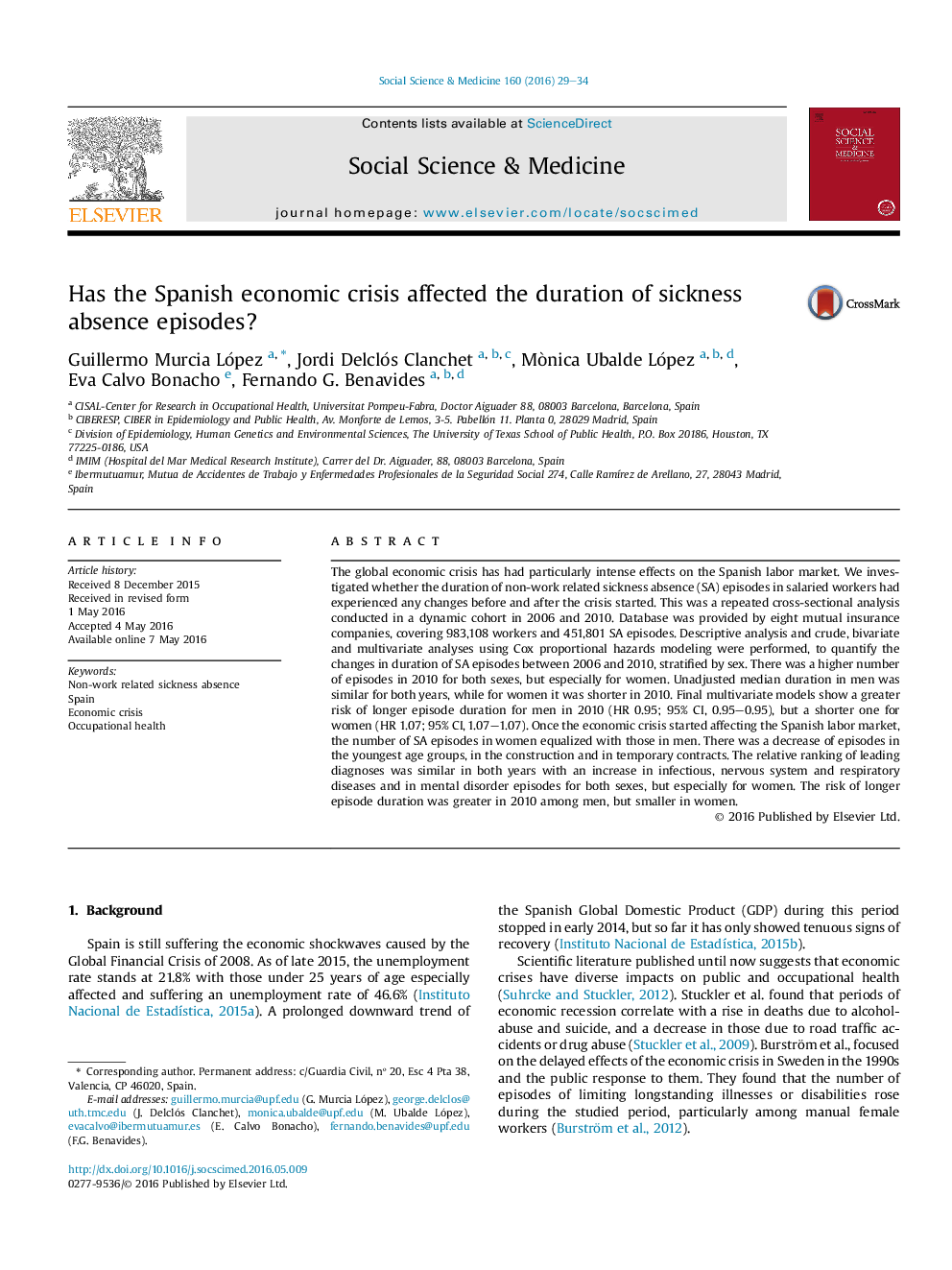| Article ID | Journal | Published Year | Pages | File Type |
|---|---|---|---|---|
| 7329891 | Social Science & Medicine | 2016 | 6 Pages |
Abstract
The global economic crisis has had particularly intense effects on the Spanish labor market. We investigated whether the duration of non-work related sickness absence (SA) episodes in salaried workers had experienced any changes before and after the crisis started. This was a repeated cross-sectional analysis conducted in a dynamic cohort in 2006 and 2010. Database was provided by eight mutual insurance companies, covering 983,108 workers and 451,801 SA episodes. Descriptive analysis and crude, bivariate and multivariate analyses using Cox proportional hazards modeling were performed, to quantify the changes in duration of SA episodes between 2006 and 2010, stratified by sex. There was a higher number of episodes in 2010 for both sexes, but especially for women. Unadjusted median duration in men was similar for both years, while for women it was shorter in 2010. Final multivariate models show a greater risk of longer episode duration for men in 2010 (HR 0.95; 95% CI, 0.95-0.95), but a shorter one for women (HR 1.07; 95% CI, 1.07-1.07). Once the economic crisis started affecting the Spanish labor market, the number of SA episodes in women equalized with those in men. There was a decrease of episodes in the youngest age groups, in the construction and in temporary contracts. The relative ranking of leading diagnoses was similar in both years with an increase in infectious, nervous system and respiratory diseases and in mental disorder episodes for both sexes, but especially for women. The risk of longer episode duration was greater in 2010 among men, but smaller in women.
Related Topics
Health Sciences
Medicine and Dentistry
Public Health and Health Policy
Authors
Guillermo Murcia López, Jordi Delclós Clanchet, Mònica Ubalde López, Eva Calvo Bonacho, Fernando G. Benavides,
